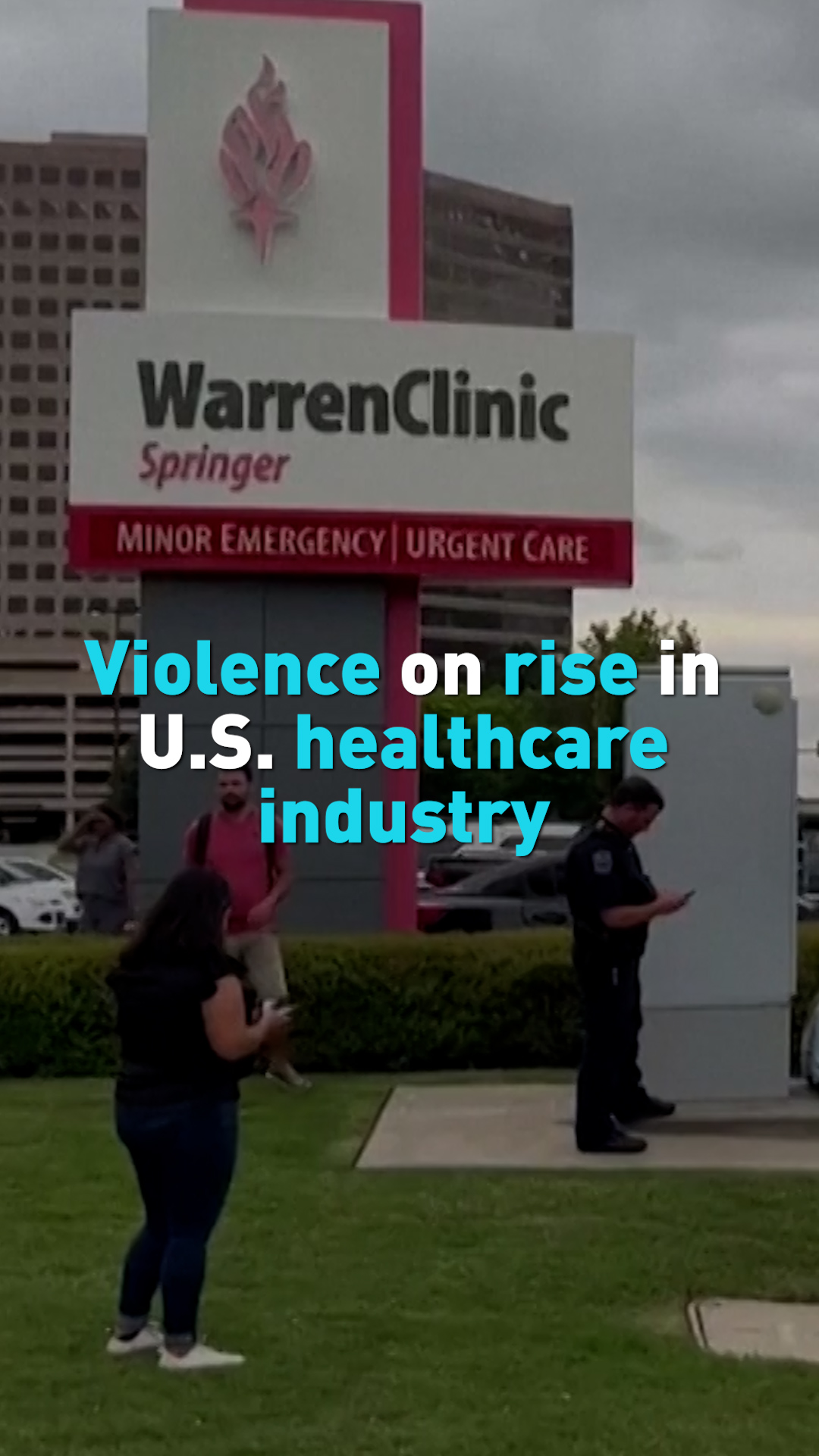01:42

Nurses working for the Rocky Mountain Veterans Affairs Hospital in Aurora, Colorado have reported being kicked, yelled at, hit, and spat upon. Some health workers have reported much worse treatment from patients in the workplace.
Trends have indicated that this violence against medical centers and U.S. hospitals has continued to grow post-pandemic.
A meta-analysis performed in 2019 found that 69% of healthcare workers experienced workplace violence, but a 2021 meta-analysis found that rate increased to 77%. The effects of the COVID-19 pandemic led to the exacerbation of this violence, leading to burnout and resignations among workers.
Not only have physical and verbal assaults been on the rise, but cyberattacks have tied up hospital systems, leading to some shutting down for days.
Physical and verbal assaults against health care workers
Last year saw several instances of gun violence at hospitals and medical centers, including a deadly shooting in Tulsa, Oklahoma.
Health administrations have struggled with addressing this problem.
Legacy Health in Portland, where one of its hospitals was attacked by a visitor, killing a security guard, said it would install additional metal detectors, require bag searches at their hospital and send patients and visitors to controlled entrances.
Nearly 40 states have passed laws creating or increasing penalties for violence against workers in the health care sector. Some states have also increased up security at hospitals.
Critics are concerned that private hospital police could exacerbate health care and policing inequities experienced by Black patients.
The president of National Nurses United, Deborah Burger, says that patients are bounced between emergency rooms and home and have become frustrated over high costs, limited treatment options and long wait times.
“Hospitals don’t really have a complaints department, so the only real target they have is the nurse or staff that are standing right in front of them,” Burger told the AP.
Cyberattacks paralyze hospitals
Cyberattacks continue to be a major disruption for hospital systems across the country.
A “data security incident” in a hospital based in California would spread to clinics in Texas, Connecticut, Rhode Island, and Pennsylvania. This would close many primary care services for a day and divert ambulances from some hospitals.
Security officials say that these crimes not only take weeks to recover, but also a “threat-to-life crime,” which leaves communities vulnerable.
A paper from the U.S. Department of Homeland Security Cybersecurity and Infrastructure Security Agency in 2021 warned that these attacks also exacerbated problems hospitals faced during the COVID-19 pandemic; hospital system’s networks were unable to access patient schedules and records and disrupted communications.
Millions of Americans' data and information have been breached due to similar cyberattacks, with one in July affecting as many as 11 million HCA Healthcare patients.